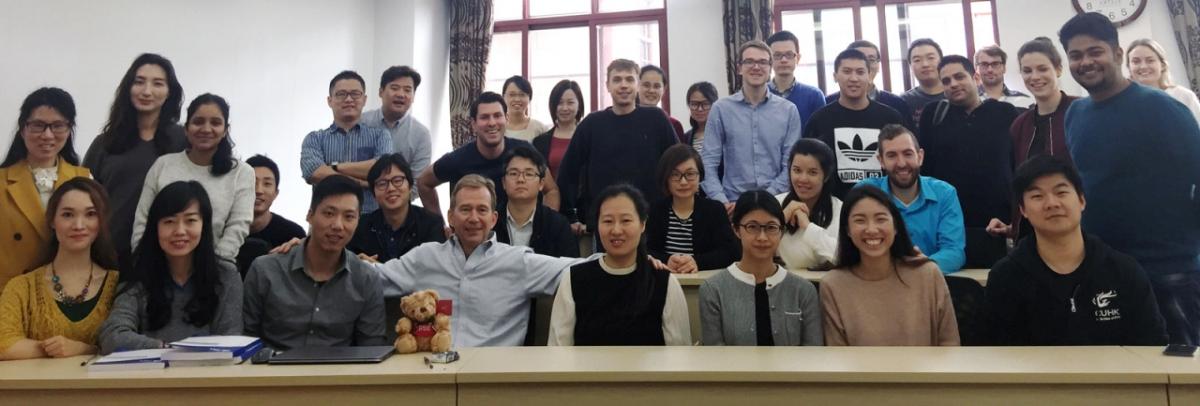What Can We Learn from MBA Students in China on Business Sustainability?

Originally posted on erb.umich.edu
Dr. Thomas P. Lyon recently taught a short course at Shanghai Jiao Tong University on Corporate Environmentalism and Public Policy. Lyon holds the Dow Chair of Sustainable Science, Technology and Commerce, with appointments in both the University of Michigan’s Ross School of Business and School for Environment and Sustainability. He talked with the Erb Institute about his experience teaching on these topics in Shanghai.
Q: How did this course at Shanghai Jiao Tong University come about?
Lyon: Professor Haitao Yin, a former Erb postdoctoral researcher who teaches at the university, invited me to teach it. I had previously taught a short Ph.D.-level course there on energy economics, but this was my first time teaching this course, which was aimed at MBA students in an international MBA program. About two-thirds of the students are Chinese and one-third are exchange students, most of whom are from Western Europe, but some are from India, Nepal, Germany and the Netherlands.
Q: Is there more of a need for sustainability education there?
Lyon: Yes. They are just not nearly as exposed to it or familiar with it as Michigan students. For example, I asked them if they were familiar with ecolabels like “organic” or “Fair Trade,” and most of them had no clue what those are. These practices are much less advanced in China.
Q: How do Chinese students’ perceptions of business sustainability issues differ from those of American students?
Lyon: One way to gauge that is to look at the topics they chose for their final papers. I had them write short final papers in teams, and I’ve taught this course in various places around the world—in Switzerland and California, and versions of it at the University of Michigan. Three of the Shanghai student teams chose to study steel companies, and a fourth studied a mining company. So the environmental issues Chinese students are thinking of center around mitigating the damage caused by heavily polluting industrial firms. In contrast, American students tend to be more interested in start-up companies that are creating new solutions to sustainability problems.
Q: What about awareness of environmental issues more generally?
Lyon: There is a strong awareness of air pollution. In many of the big cities, the air quality is terrible much of the time, and people are very aware of air pollution as an issue. I’ve been to Shanghai several times before, and one thing that’s really noticeable now is that, about two years ago, the government passed an ordinance that says that all scooters—motorized two-wheel vehicles—have to be electric. They seem to have done a pretty serious job of enforcement, so you don’t really see the diesel-engine scooters around anymore. The Chinese government is fairly tolerant of the growing number of environmental protests, as party leaders understand they need to make huge improvements in air and water quality. And they are willing to talk about climate change as a serious issue, unlike the current U.S. administration.

